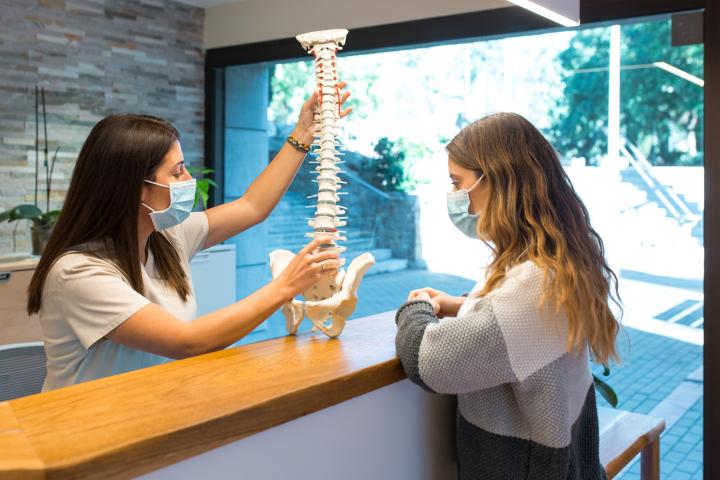Ketamine is well-known for its sedative and pain-relieving
effects, later being used as a general anesthetic in the 1960s, but only
recently have people started taking interest in it’s potential mental health
applications, like with PTSD, anxiety, and depression.
Studies show that almost 50% of people with generalized
anxiety disorder do not respond well to typical anti-anxiety medications. For
those seeking more alternative options, ketamine for anxiety is a promising
solution. Although ketamine is FDA approved for treatment-resistant depression,
its use on anxiety disorders is still undergoing clinical trials. Regardless, ketamine therapy for PTSD and
anxiety is gaining traction with both patients and professionals due to the
lack of effectiveness from standard treatments.
This article will describe the mechanisms of action of
ketamine, how effective it is for anxiety, what different treatment options are
available, and for those wishing to explore more innovative therapy options,
how to locate ketamine treatments near me.
How
Ketamine Works for Anxiety
Ketamine boosts levels of glutamate, a neurotransmitter
crucial for mood, memory, and learning, which increases two to three-fold
within minutes. This process stimulates the phenomenon called neuroplasticity,
which refers to the brain’s ability to adapt and form new connections. By
further increasing neuroplasticity, in addition to replacing negative thought
processes with constructive ones, ketamine helps 're-wire' the brain which
results in alleviated anxiety symptoms.
Ketamine
vs. Traditional Anti-Anxiety Medications
SSRIs and other conventional anti anxiety medications work by
first reducing the levels of serotonin. Later, it works to indirectly impact
glutamate but outcomes are usually noticed after two to six weeks of starting
medication. These medications are practically ineffective for the patients
looking for immediate results.
In contrast, ketamine affects the receptors of glutamate more
directly, which translates to quicker outcomes. Dramatic relief from symptoms
is reported hours after the session for some patients. Most research support
the efficacy of ketamine therapy for generalized anxiety disorder (GAD) and
social anxiety disorder (SAD) and offer hope to patients who rest unresponsive
to conventional methods.
Different
Approaches to Ketamine Therapy
There are multiple ways to administer ketamine therapy for
anxiety and PTSD and these vary in efficiency and practicality:
·
Intravenous Infusions: IV infusions are the most
effective but also the most costly method of delivering ketamine through a
controlled drip directly into the blood stream. IV infusions are always done
under the supervision of a doctor.
·
Intramuscular IM Injections: Consist of a single-dose
injection performed in a clinical setting on a large muscle like the thigh or
arm.
·
Sublingual Tablets: These are dissolving tablets
placed under the tongue, and are most effective for maintenance between an IV
or IM treatment, but do not provide much relief.
·
Nasal Spray (Esketamine/Spravato): This is a
prescription nasal spray for treatment resistant depression and it can only be
used under supervision in the hospital.
This group of IV infusions, Esketamine nasal spray, and IM
injections are the most effective because they have the fastest rate of
absorption, and the strongest therapeutic effect.
Effectiveness
of Ketamine for Anxiety
Ketamine’s effect on depression has been widely studied, but
its efficacy for anxiety is still developing. Nonetheless, initial research
indicates that it can provide considerable relief for people experiencing
anxiety disorders.
Generalized
Anxiety Disorder GAD and Social Anxiety Disorder SAD
·
In 2021 review, it was concluded that ketamine is
potentially a safe and effective treatment for anxiety disorders.
·
A 2022 study showed a single infusion of ketamine
resulted in significant reductions in panic and irritability in people
suffering from GAD and SAD and these effects lasted for up to two weeks.
·
According to a 2017 study, 83% of people suffering
from GAD and SAD reported experiencing alleviation in their anxiety symptoms
within an hour of receiving ketamine.
·
A 2013 study
analyzed hospice patients suffering from depression and anxiety and showed that
oral ketamine improved symptomatology of anxiety significantly.
·
In yet another
study from 2017, patients suffering from social anxiety disorder who were
treated with ketamine infusions reported much greater positive change in their
symptoms when compared to those who received placebo treatment.
Ketamine
and Obsessive Compulsive Disorder (OCD)
Since OCD is classified as an anxiety disorder, there have
been studies looking into the effect of ketamine on obsessive compulsive
symptoms.
In a studied performed on 15 participants suffering from
persistent obsessive thoughts, it was found most patients had a significant
reduction in symptoms one week after receiving the ketamine infusions.
Finding
Ketamine Treatments Near Me
For anyone searching the term, Ketamine Treatment New Jersey, the first
step should always be to contact a certified therapist who works in ketamine
therapy. A good provider can guarantee safe treatment and optimal outcomes. If
you wish to use ketamine for anxiety, consulting with a seasoned practitioner
of medicine will likely help in deciding whether or not this is the right
course of treatment for you.
Concluding
Remarks
Ketamine therapy is an encouraging option for patients
suffering from anxiety who find little relief in standard treatments. While
providing rapid relief, it also influences glutamate levels and promotes
neuroplasticity which helps in reprogramming negative anxiety associated
thought patterns.
Although further studies are warranted, the limited scope of available data suggests this treatment option could be revolutionary in managing anxiety disorders. If you want to try ketamine therapy for PTSD or anxiety, contact a provider who can inform you about the procedures and your possible benefits.














